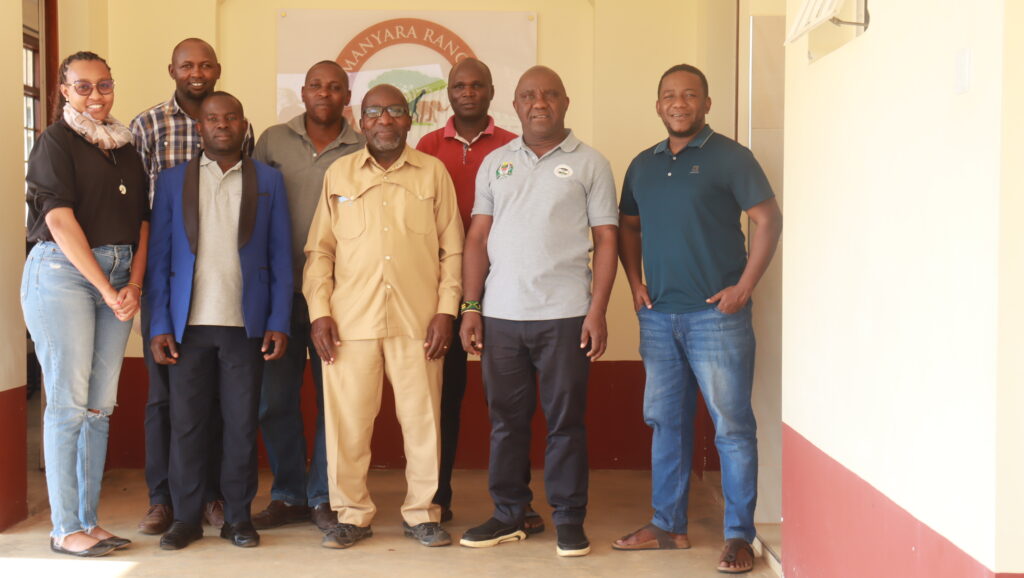Our Story
New Initiative: Community Well-Being in the Remaining Two Wildlife Corridors in Tanzania
Sustainable conservation of Africa’s diverse ecosystems and wildlife cannot be achieved without securing the well-being of local communities. In turn, wildlife and habitat offer opportunities to sustainably enhance the livelihoods of communities. Africa Bridge, with a 25-year history of poverty alleviation for families, is partnering with the Manyara Ranch Management Trust to provide a sustainable pathway to prosperity for communities and environments of the four wards around the Manyara Ranch in the Tarangire/Manyara Wildlife Corridor in Northern Tanzania.
The Tarangire-Manyara Ecosystem (TME) is one of the world’s most important remaining refuges for wildlife. It is characterized by semi-arid palatable grasslands, which provide an ideal habitat for Africa’s large mammal species. It is also vital for grazing livestock, the traditional livelihood of many of the people in the area. The ecosystem covers approximately 22,000 km2 east and south of East Africa’s Great Rift Valley escarpment.
The Manyara Ranch, managed by the African Wildlife Foundation (AWF) from 2013 – 2024 is a significant component of the TME because it allows for the free movement of wildlife between two of Africa’s most important wildlife refuges, while also being neighbour to several communities containing families living in extreme poverty. In 2024, our partner, the Manyara Ranch Management Trust (MRMT), took full responsibility to manage the Manyara Ranch for the benefit of wildlife and the local communities and is now partnering with Africa Bridge to help fulfil this purpose.
As you know, the non-profit Manyara Ranch Management Trust (MRMT) and African Wildlife Foundation have been working for over ten years to manage and protect this corridor, with promising progress. Yet significant challenges remain to ensure well-being and poverty reduction for communities living in the corridor and whose livelihoods are crucial if conservation is to succeed. Manyara Ranch Management Trust will work with Africa Bridge to jointly implement our proven, self-sustaining 5-year Path to Prosperity and Conservation model for communities within the corridor. The model uplifts most vulnerable children and their families and ensures enduring conservation through a) establishing regenerating agricultural co-ops that each year pass on valuable assets to new, eligible families with most vulnerable children; b) fostering entrepreneurship; and c) building capacity of the community to better understand and steward the wildlife and wildlands that are their legacy. Africa Bridge brings 25 years of experience in Tanzania to implement this model, which was independently evaluated in 2021 and found to dramatically reduce poverty and uplift communities.
Project planning and fund raising for this project, currently under way, are expected to culminate in a project launch in the first quarter of 2026.

Our Founding
Africa Bridge founder Barry Childs calls Africa home. He grew up in rural Tanzania, went to high school and university in South Africa, and eventually made his way to the United States. When he traveled back to Tanzania 35 years later, he was overwhelmed by the impact of poverty and HIV/AIDS on vulnerable children, and he knew he had to go home and help.
In 2000, Barry retired early from Abbott Laboratories in order to start Africa Bridge. His search for a sustainable program that would transform the lives of these children led him to conduct 80 interviews with physicians, politicians, businesspersons, church leaders, villagers, and children. It was from these interviews that the mission, values, and practices of Africa Bridge evolved.
I know how lucky I was to come of age in a place where people know we can’t be human in isolation. It’s only when we help each other that we find our true strength. This is one of the great lessons Africa has to teach the West, and the word “bridge” in our name is there to show that in helping East Africans care for their children and restore the promise of a future, we are enriched ourselves and become more human. Africa Bridge is based on the idea that this mutual exchange is essential to create real change.”
Barry Childs in accepting the Purpose Prize, 2010
The openness of the villagers and their children inspired Barry to build on the community’s strengths to design and deliver sustainable solutions to combat poverty and disease.
Our History
In 2002, Africa Bridge began its first project in the village of Idweli in Isongole Ward in southeastern Tanzania. Since then, the organization has received funding from individuals and foundations to expand into 37 additional villages in the Masoko, Mpombo, Lufingo, Kisondela, and Kambasegela Wards.
Over the last 21 years, Africa Bridge has trained over 300 village volunteers in 38 Most Vulnerable Children’s Committees and formed 82 agricultural and farm animal cooperatives caring for avocados, corn, potatoes, dairy cows, pigs, or chickens. Other support includes the provision of school supplies, the planting of indigenous and firewood trees, and projects to improve school and health infrastructure.
These interventions have resulted in the transformation of the well-being of over 10,000 Most Vulnerable Children and their families.
